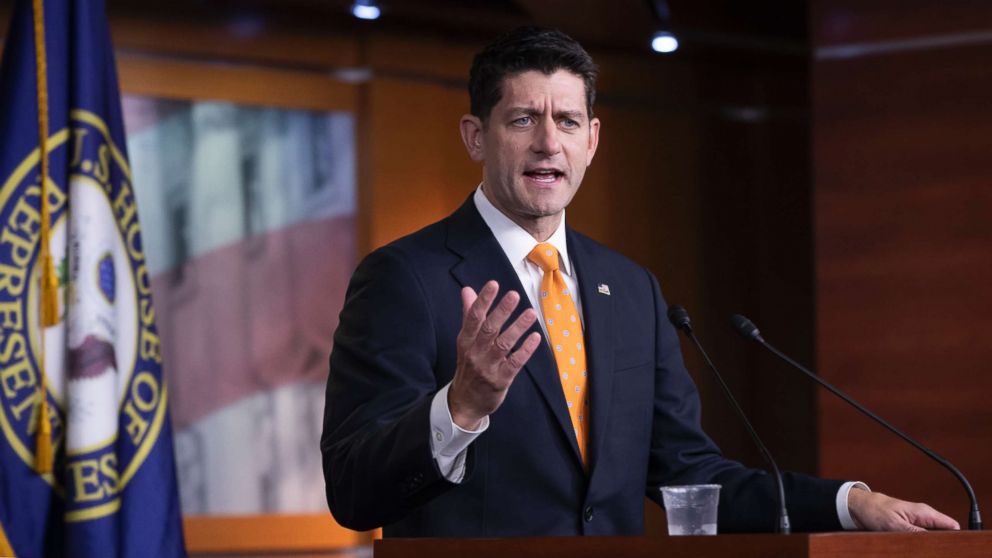Government shutdown looms with impasse over border wall
The House of Representatives adjourned for the rest of the summer Thursday, leaving itself only 11 legislative days when it returns in September to pass legislation to avert a government shutdown just weeks before the midterm election.
“Nobody wants to see a shutdown. And with a little bit of cooperation on both sides, we’re very close,” Sen. Steve Daines, R-Mont., told ABC News.
“There is no discussion up here about a shutdown," added Sen. Jim Risch, R-Idaho. "Neither side wants it.”
But there are still serious sticking points that leave an outside chance that the government could shut down – one of the most serious being funding for President Donald Trump’s border wall. The federal government is set to run out of money at the end of the day on September 30, and over the weekend, Trump renewed his threat to shut down the government if he doesn’t get his desired money for border security.
The House and Senate have agreed to vastly different figures to fund border security. The House Appropriations Committee homeland security bill, which cleared the panel Thursday, contains $5 billion for “physical barriers and associated technology on the southern border.”
The Senate bill, which cleared its committee last month, allocated $1.6 billion for pedestrian fencing in the Rio Grande Valley and border security technology.
While negotiations are expected to continue during the recess, a compromise deal does not appear imminent.
Congressional leaders have acknowledged they might need to approve a short-term spending measure to buy more time to work out those and other differences in a dozen appropriations bills.
“There will be some bills that will not pass, that won't be ready or done by then. And we'll have to have a CR [continuing resolution] to bridge us over until later on,” House Speaker Paul Ryan, R-Wis., said during a press conference Thursday.
But Trump has repeatedly threatened to shut down the government if he does not get additional border wall funding by the end of the fiscal year, meaning he may not be satisfied with signing even a short-term measure if it does not increase the amount of money going towards the wall.
“This funding is critical to the Administration’s top priority, securing the Nation’s borders,” White House press secretary Sarah Sanders said in a statement last week after House Republicans appropriated $5 billion for border funding.
Senate Appropriations Committee aides declined to speculate about the possibility of a government shutdown or the status of the appropriations process by the end of September.
"At this time the Senate is focused on completing work on all of the FY19 appropriations bills so that they can be conferenced and sent to the President’s desk for signature. Any discussion of a conference disposition of any bill or item contained within a bill would be premature," a spokeswoman for the Senate Appropriations Committee majority said.
A spokesperson for the White House did not respond to inquiries about whether the president would sign a short-term CR that did not increase border security levels, or about whether he would be willing to accept funding below the House’s $5 billion figure.
It's possible Congress could act to keep most of the government open and running -- despite a standoff over wall funding -- approving some funding bills and getting them to the president's desk by the end of September, but not others, which would be temporarily funded at their current levels through continuing resolutions until their bills get passed.
Senate Majority Whip John Cornyn told ABC that congressional leadership would likely defer completion of the homeland security appropriations bill, which contains border security funding, or at the very least “push it to the end and try to do everything else we can do.”
The House and Senate are currently on a collision course with their key committees approving different amounts of border security funding.
“Wasting $5 billion of the American taxpayer’s money on a cynical, symbolic, and ineffective border wall — a wall the president has repeatedly promised Mexico would pay for — is a non-starter in the Senate,” Senate Appropriations Committee vice chairman Patrick Leahy, D-Vt., said in a statement on the House bill.
The Senate bill, which would allocate $1.6 billion for border security, falls short of the $2.2 billion Trump requested in May.
The House and Senate homeland security appropriations bills still have a long way to go before they would reach the president’s desk. First the full House and Senate must approve their respective versions, and then lawmakers will merge the two packages in what’s known as a conference committee where they’ll reconcile any legislative differences. Finally, the two chambers must approve the final product, known as a conference report.
And while the Senate is in session for another three weeks in August, the House is on recess all month, limiting the amount of time the two chambers have to work out major differences on border security before the current government funding runs out.
Ryan, who met with the president on Wednesday alongside Senate Majority Leader Mitch McConnell to discuss the issue, expressed confidence Thursday that the president would sign a short-term measure even if it did not contain increased border security.
“The president's willing to be patient to make sure that we get what we need so that we can get that done, because border security's extremely important,” Ryan said.




